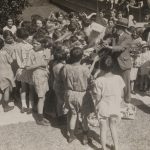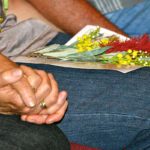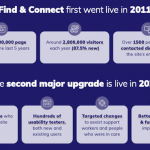Finding Family
- Aug 20, 2021
- In Features
As much of the country is in lockdown, we are hearing more from people who lost touch with, or never had the opportunity to be with their family after being placed in care. August is also family history month, so if you’re searching for family, particularly if you were in care, there’s help available to find them.
People who spent time in care before 1990 can use the Find & Connect support services to help find family, as well as access available records about their time in care. Former Child Migrants can also get help from the Child Migrants Trust.
There are specific services for Indigenous Australians. Aboriginal and Torres Strait Islander people separated from their families under the past laws, practices and policies of Australian governments can get help to locate family through Link-Up services: http://aiatsis.gov.au/research/finding-your-family/link-services.
People affected by forced adoption can find organisations that can help here: https://www.dss.gov.au/families-and-children/programmes-services/family-relationships/forced-adoption-practices/support-services-for-people-affected-by-past-forced-adoption-policies-and-practices
There are also a number of ways to try and trace family members individually.
If you know your family member’s name, try:
The White Pages: http://www.whitepages.com.au/
The electoral roll is a list of the names and addresses of everyone who is eligible and enrolled to vote in Australia: http://aec.gov.au/Enrolling_to_vote/About_Electoral_Roll/.
Every state and territory has a registry of Births Deaths and Marriages (or BDM), which you can find here: http://www.australia.gov.au/information-and-services/family-and-community/births-deaths-and-marriages-registries.
There are Facebook groups that may assist you in your search, but you need to be very careful. Pages can be fake, and people offering help can be trying to get your personal information for their own gain. There are some pages set up specifically to help people searching for family, and you can also try Community pages such as:
- Local Sporting Groups
- ‘Remember when’ pages
- School reunion pages
Family historians are not supported through Find & Connect, but there are some ways to research your family history. First, check our online guide. The National Archives of Australia website is a good place to start: http://naa.gov.au/collection/family-history/.
Most State Libraries have a genealogy (family history) centre, and you may get free access to websites like Ancestry.com, and search resources like Police Gazettes, post office directories, immigration and shipping records and a range of family history indexes.
Historic electoral rolls can be very useful in tracking people over time and place. Past copies of electoral rolls (published annually) are available for public inspection in state and local libraries when they are open.
The Australian Electoral Rolls from 1903 to 1980 are available for viewing and searching through the ‘Ancestry.com.au’ website, which can be accessed free through your library.






